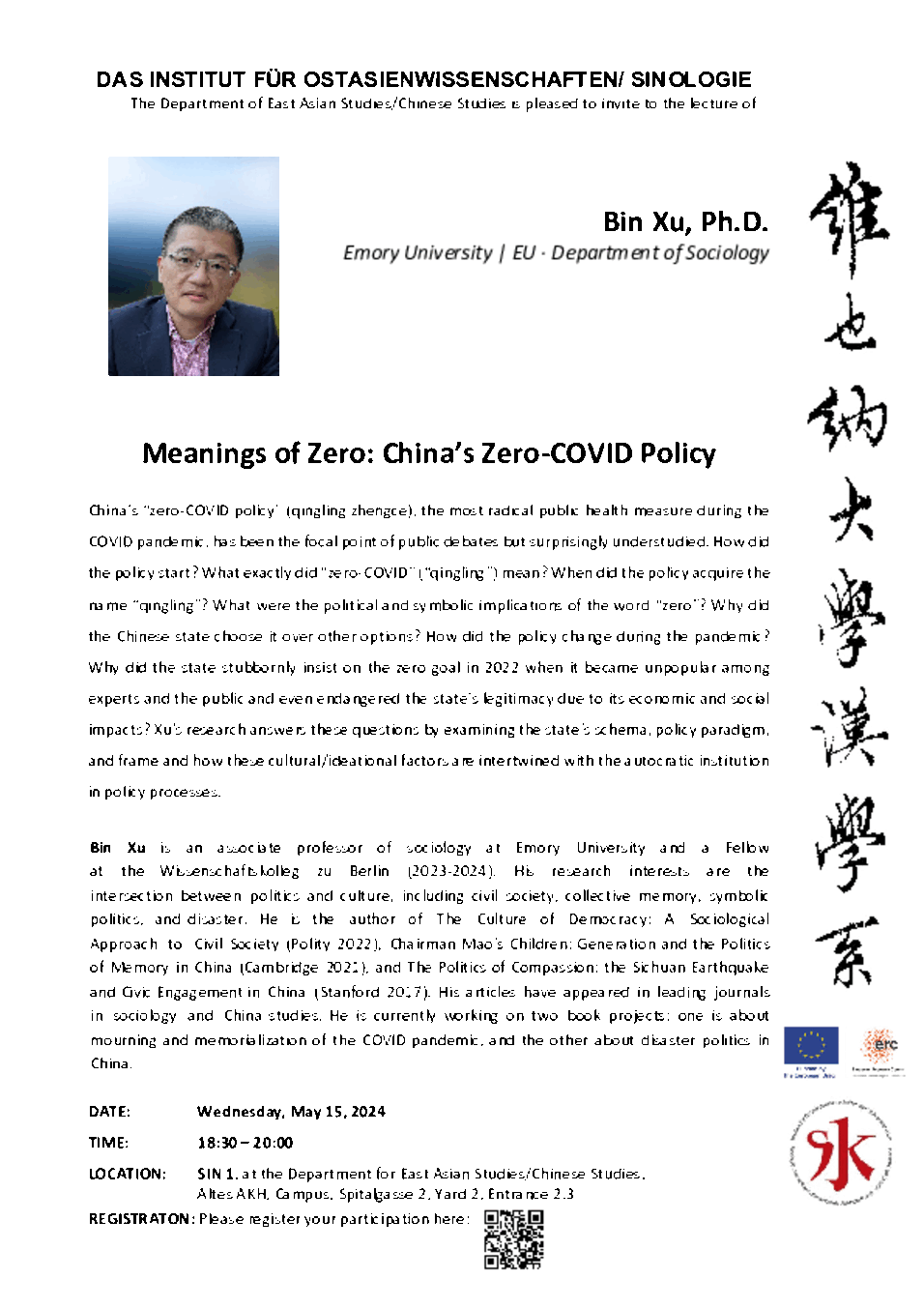China’s “zero-COVID policy” (qingling zhengce), the most radical public health measure during the COVID pandemic, has been the focal point of public debates but surprisingly understudied. How did the policy start? What exactly did “zero-COVID” (“qingling”) mean? When did the policy acquire the name “qingling”? What were the political and symbolic implications of the word “zero”? Why did the Chinese state choose it over other options? How did the policy change during the pandemic? Why did the state stubbornly insist on the zero goal in 2022 when it became unpopular among experts and the public and even endangered the state’s legitimacy due to its economic and social impacts? Xu’s research answers these questions by examining the state’s schema, policy paradigm, and frame and how these cultural/ideational factors are intertwined with the autocratic institution in policy processes.
Bin Xu is an associate professor of sociology at Emory University and a Fellow at the Wissenschaftskolleg zu Berlin (2023-2024). His research interests are the intersection between politics and culture, including civil society, collective memory, symbolic politics, and disaster. He is the author of The Culture of Democracy: A Sociological Approach to Civil Society (Polity 2022), Chairman Mao’s Children: Generation and the Politics of Memory in China (Cambridge 2021), and The Politics of Compassion: the Sichuan Earthquake and Civic Engagement in China (Stanford 2017). His articles have appeared in leading journals in sociology and China studies. He is currently working on two book projects: one is about mourning and memorialization of the COVID pandemic, and the other about disaster politics in China.
For more information, please refer to the attached PDF
DATE: Wednesday, May 15, 2024
TIME: 18:30 – 20:00
LOCATION: SIN 1, at the Department for East Asian Studies/Chinese Studies, Altes AKH, Campus, Spitalgasse 2, Yard 2, Entrance 2.3
REGISTRATION: Please register your participation here: https://rb.gy/bbelqm

